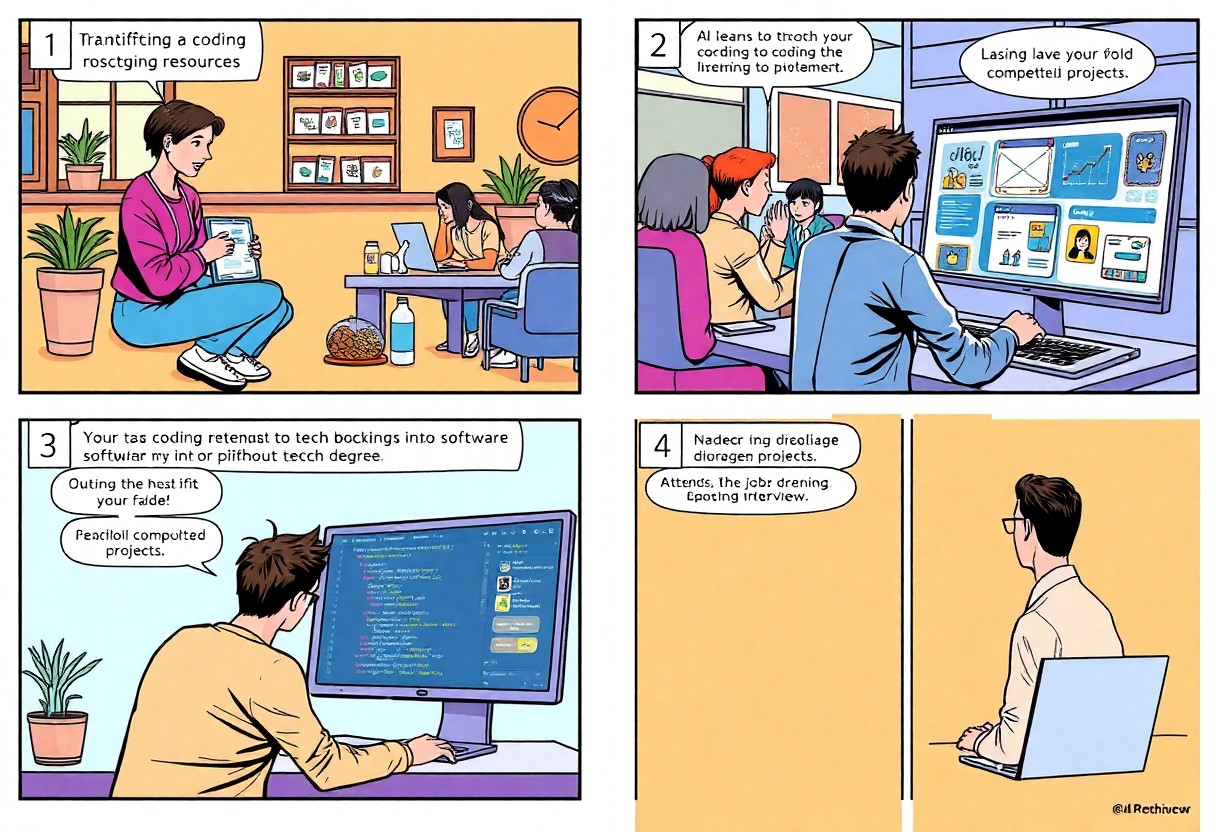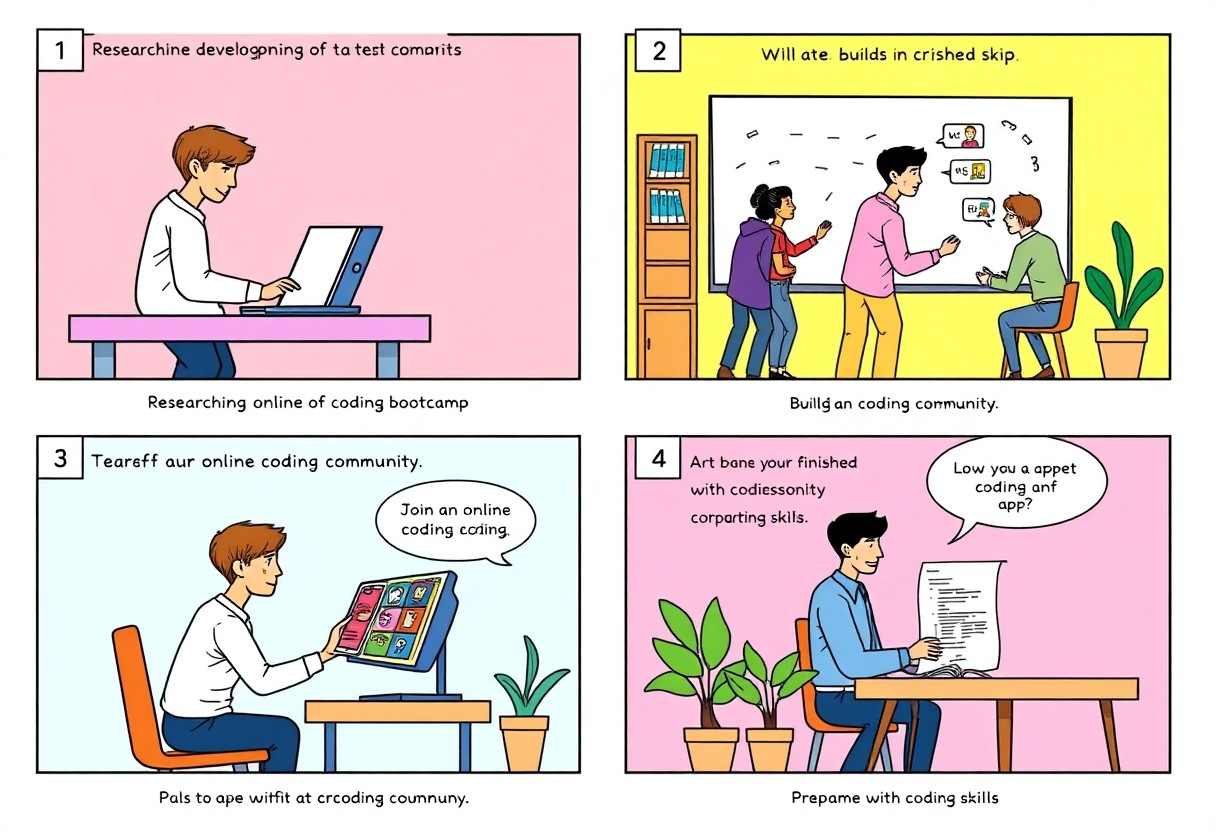Ultimately, transitioning into software development without a tech degree is entirely achievable with the right approach. I’ve navigated this path and can guide you through the imperative steps to build your skills and confidence. Focus on self-education through online resources and practical experience via projects to enhance your portfolio. Additionally, networking plays a vital role in finding opportunities and mentors. With determination and the right strategies, you can succeed in this rewarding field.
Key Takeaways:
- Focus on building a portfolio by working on personal projects or contributing to open-source.
- Utilize online resources and coding bootcamps to gain practical skills and knowledge.
- Network with professionals in the industry and seek mentorship for guidance and opportunities.
Understanding the Software Development Landscape
Software development encompasses a diverse range of methodologies, technologies, and specializations. You’ll encounter agile frameworks, various programming languages, and platforms such as cloud computing and mobile application development. This landscape is ever-evolving, so staying updated with the latest advancements is imperative for your growth and adaptability as a developer.
Key Roles and Responsibilities
In software development, various roles exist, including frontend developers who focus on user interfaces, backend developers responsible for server-side logic, and full-stack developers who bridge both areas. Other positions like quality assurance testers ensure product reliability, while project managers oversee the development process. Knowing each role’s responsibilities will help you identify your interests and strengths.
Industry Trends to Consider
The software development industry is characterized by rapid changes, with emerging trends influencing job markets and skill demands. Technologies such as artificial intelligence and machine learning are gaining traction, pushing developers to be familiar with data analysis and algorithms. Additionally, the rise of DevOps practices emphasizes the need for collaboration between development and operations, fostering a culture that values continuous integration and deployment.
Currently, remote work capabilities are reshaping how development teams operate. According to a 2022 survey, over 70% of developers work remotely at least part-time. This shift has expanded opportunities globally, allowing you to access roles without geographical constraints. Additionally, automation and low-code platforms are taking center stage, enabling non-technical users to contribute, which emphasizes the importance of adaptability. Staying informed about these trends positions you advantageously in a competitive landscape.
Identifying Your Transferable Skills
Transitioning to software development involves recognizing the transferable skills from your previous roles. Many skills developed in non-tech industries, such as problem-solving, critical thinking, and teamwork, are directly applicable to coding and development. Assessing your strengths equips you to leverage them in a tech environment, making your transition smoother.
Analyzing Your Background
Your past experiences hold valuable insights into which skills can translate into software development. Take time to reflect on your roles, responsibilities, and the challenges you’ve faced. Highlight instances where you’ve demonstrated analytical abilities, leadership, or adaptability, as these qualities are assets in any tech position.
Highlighting Relevant Experience
Focusing on your relevant experience involves presenting your background in a way that aligns with the demands of software development. Consider projects where you used analytical thinking or collaborated on solutions. Frame your narrative around successful outcomes you’ve achieved and skills you’ve employed, showcasing how they relate to the digital landscape.
I recall a project where I led a cross-functional team to streamline a manual reporting process. By implementing a basic spreadsheet tool, we reduced reporting time by 40%, showcasing my ability to identify and solve problems efficiently. Highlighting projects like this will illustrate your capacity for innovation and technical understanding, even if they were outside traditional software roles. Utilize specific metrics and accomplishments to strengthen your case further.
Learning the Necessary Technical Skills
Mastering the necessary technical skills is the next step in your transition to software development. I focused on practical knowledge that could be immediately applied. Start by becoming familiar with the software development lifecycle, version control systems like Git, and project management tools. Understanding the fundamentals of algorithms, data structures, and software design principles will set a solid foundation for your journey.
Recommended Programming Languages
Choosing the right programming language can significantly impact your learning curve. I suggest starting with Python due to its simplicity and versatility, followed by JavaScript for web development. Additionally, Java and C# are excellent choices if you’re interested in enterprise software or mobile applications.
Online Resources for Learning
Numerous online platforms offer courses and tutorials tailored for aspiring developers. I found Codecademy, freeCodeCamp, and Udemy particularly useful for structured learning paths. These resources often include hands-on projects, allowing you to apply what you’ve learned in real-world scenarios, significantly enhancing your understanding of the technology.
In addition to the platforms mentioned, consider participating in coding bootcamps that provide immersive experiences in a short time frame. Websites like Coursera and edX offer university-level courses created by reputable institutions, often at no cost. Engaging with online communities on GitHub and Stack Overflow can also provide invaluable support and feedback while you learn and develop your skills.

Building a Portfolio
A robust portfolio is your best asset in transitioning to software development. It should reflect your skills, creativity, and growth as a developer. Focus on including a variety of projects that showcase different programming languages and technologies to demonstrate versatility. Start by selecting a few standout projects and presenting them clearly with a concise description, your role, and the technologies used. This not only highlights your technical proficiency but also your problem-solving abilities.
Creating Projects to Showcase Skills
Building personal projects is a practical way to showcase your skills. I recommend starting with projects that interest you or solve real-world problems. This could range from a simple to-do app to a more complex web application. Each project allows you to experiment with code, learn new frameworks, and ultimately demonstrate your growth as a developer.
Utilizing GitHub and Other Platforms
Employ platforms like GitHub to share your projects with a wider audience. I use GitHub not only to host my projects but also to collaborate with others. Make sure to document your code effectively and write clear READMEs that explain the project’s purpose and functionality, making it accessible for potential employers or collaborators.
GitHub serves as a digital portfolio where you can showcase your work and coding capabilities. By regularly committing your code, you form a timeline of your progression as a developer. In addition to GitHub, utilize platforms like GitLab or Bitbucket to explore various features and build your familiarity with version control systems. Participating in open source projects can also provide exposure and valuable collaboration experience. Engaging with other developers will enhance your skills and help you understand best practices in coding and project management.
Networking and Community Engagement
Building your network is imperative in the software development field. Engaging with others can open doors to job opportunities, mentorship, and resources you may not have come across otherwise. Using platforms like LinkedIn, GitHub, and Twitter will help you connect with professionals in your desired area. Rather than approaching these connections solely for job prospects, focus on building genuine relationships around shared interests and goals.
Joining Tech Communities
Participating in tech communities provides support and insights that can significantly aid your transition. Online forums like Stack Overflow or local coding groups foster collaboration, knowledge-sharing, and problem-solving. By asking questions, contributing your expertise, and assisting others, you establish yourself as an engaged member of the tech community, making valuable connections along the way.
Attending Meetups and Conferences
Meetups and conferences are fantastic opportunities to learn and network. They offer you access to industry leaders, workshops, and talks that can deepen your knowledge and expose you to new trends. Often, local chapters of organizations host these gatherings, making it easy to find events relevant to your interests and level of expertise.
Attending meetups and conferences can vastly enhance your learning experience. For instance, local tech meetups often focus on specific languages or technologies, giving you a chance to probe deeper into areas like JavaScript or Python. Conferences, on the other hand, provide a broader view of the industry and are an excellent way to hear from experts who share their insights and real-world experience. Many events also include networking sessions, where you can connect directly with individuals who share your interests, leading to potential collaborations, job referrals, or mentorship opportunities.
Preparing for Job Applications
Job applications in software development require a strategic approach. Tailoring your approach maximizes your chances of landing an interview. Research the companies you’re applying to, understand their tech stack, and align your experiences and portfolio to demonstrate your fit. Networking can provide insights and referrals that are invaluable, especially in a competitive job market.
Crafting an Effective Resume
Your resume should highlight relevant skills and projects, even if they stem from a non-technical background. Focus on your achievements, projects, and the specific technologies you’ve utilized. Use keywords from job descriptions to get past automated screenings. A clean, well-structured layout can make all the difference in catching a recruiter’s eye.
Ace the Technical Interview
Technical interviews test your problem-solving skills and understanding of core programming concepts. Prepare by practicing coding challenges on platforms like LeetCode or HackerRank. Familiarize yourself with algorithms, data structures, and the specific technologies relevant to the job. Mock interviews can help build confidence and improve your ability to articulate your thought process clearly.
For the technical interview, focus on simulating real interview conditions. Use coding challenges that you’re likely to encounter and solve them within a set time. Break down problems into manageable parts, explaining your reasoning as you go. I recommend practicing with a partner or recording yourself to refine your communication skills. Research common interview questions specific to the company can help you anticipate their expectations and tailor your responses accordingly.
To wrap up
The transition into software development without a tech degree is entirely achievable with determination and the right resources. I recommend focusing on self-learning through online courses, building a portfolio with personal projects, and actively participating in coding communities. As you gain skills, consider internships or freelance opportunities to gain practical experience. Networking with professionals in the industry can provide valuable insights and potential job leads. By following these steps, you can successfully navigate your journey into the tech world and establish a rewarding career in software development.
FAQ
Q: Is it possible to transition into software development without a tech degree?
A: Yes, many successful software developers have transitioned from non-tech backgrounds. Skills such as problem-solving, critical thinking, and self-discipline play a significant role. Online courses, bootcamps, and self-study can provide the necessary knowledge and skills.
Q: What are the best resources for learning software development skills?
A: There are various resources available, including online platforms like Codecademy, freeCodeCamp, Coursera, and Udemy. Books and coding bootcamps are also valuable. Joining coding communities and attending meetups can offer support and networking opportunities.
Q: How can I build a portfolio without formal experience in software development?
A: Building a portfolio can be achieved by working on personal projects, contributing to open-source projects, or doing freelance work. Showcasing these projects on platforms like GitHub demonstrates your coding skills and problem-solving ability to potential employers.
